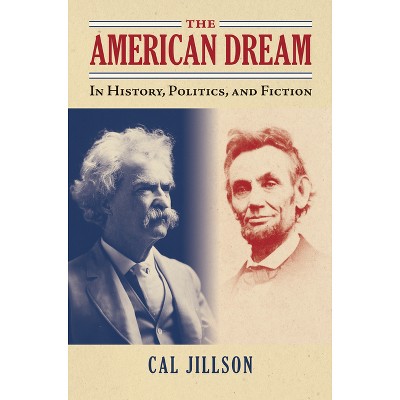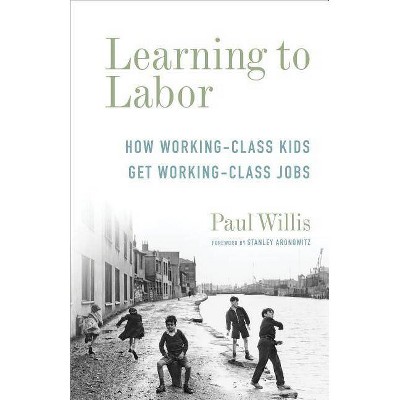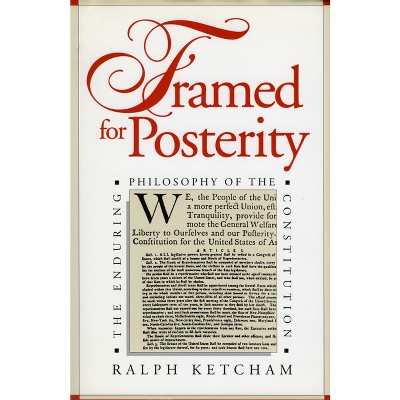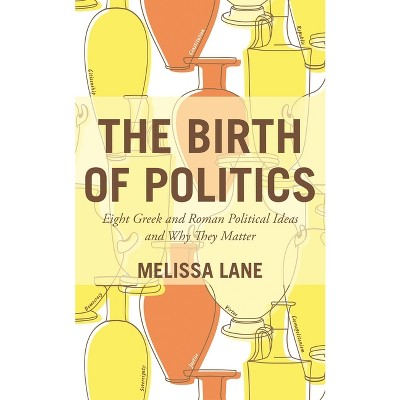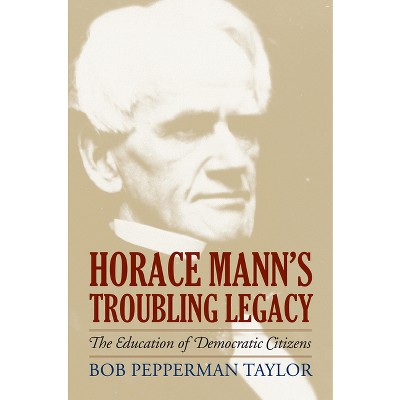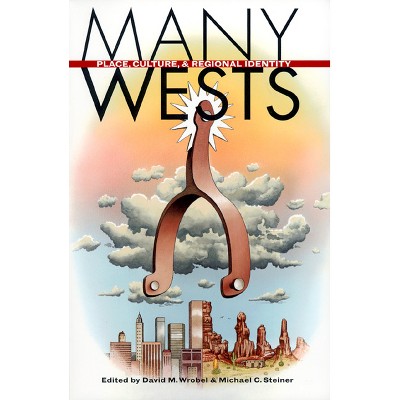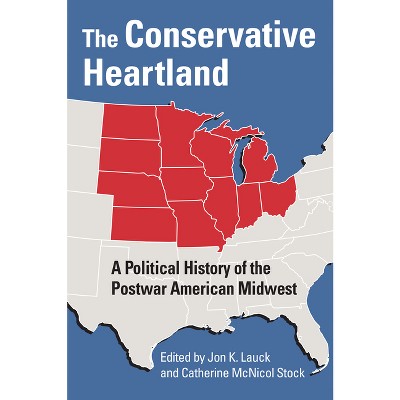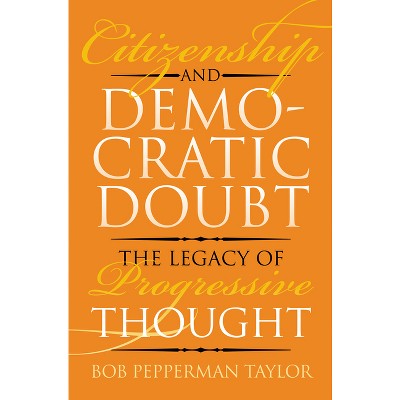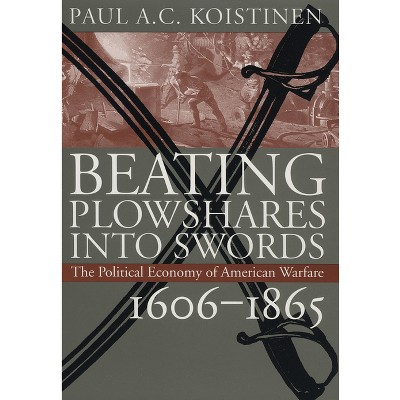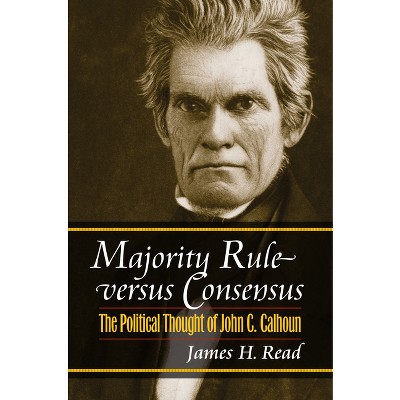Sponsored

Horace M. Kallen in the Heartland - by Michael C Steiner (Hardcover)
In Stock
Sponsored
About this item
Highlights
- The Harvard-educated, Jewish American philosopher Horace Meyer Kallen (1882-1974) is commonly credited with the concept of cultural pluralism, which envisioned immigrant and minority groups cultivating their distinctive social worlds and interacting to create an inclusive, ever-changing true American culture.
- Author(s): Michael C Steiner
- 240 Pages
- Political Science, History & Theory
Description
About the Book
"While scholars regularly credit Horace M. Kallen for originating the concept of cultural pluralism-in which many cultures coexist within the dominant culture-they routinely ignore the Midwest's deep impact on his thinking. He is generally depicted as a dissatisfied Easterner who endured seven years of exile from 1911 until 1918 in a dreary hinterland. In contrast to this view, Steiner demonstrates that the Midwest was the essential catalyst for Kallen's theory. He traces the concept to its origins in the Midwest during the first decades of the twentieth century and recognizes the region as the source of an expansive idea that continues to reverberate a century later. Kallen's Midwest was a matrix of cultural pluralism, and Steiner connects the philosopher to the economic and cultural dynamics of his adopted region as well as to a wider pluralist community of thought that influenced him. Toward the close of the book, Steiner traces the similarities and differences between cultural pluralism and multiculturalism that emerged by the time of Kallen's death in the early 1970s and discusses the expansion and renewed relevance of his Midwestern-based theory into the twenty-first century"--Book Synopsis
The Harvard-educated, Jewish American philosopher Horace Meyer Kallen (1882-1974) is commonly credited with the concept of cultural pluralism, which envisioned immigrant and minority groups cultivating their distinctive social worlds and interacting to create an inclusive, ever-changing true American culture. Though living and teaching in Madison, Wisconsin, when he developed this influential theory, Kallen's seven-year sojourn in the Midwest (1911-1918) rarely figures in accounts of the theory's origins. And yet, Michael C. Steiner suggests, the Midwest, far from being a mere interruption in Kallen's thought, was in fact the essential catalyst for the theory of cultural pluralism, a concept that continues to shape public debate a century later. The Midwest in the first decades of the twentieth century was a youthful region experiencing massive immigration and the xenophobic fervor of approaching war. In this milieu Steiner locates a pervasive pluralist zeitgeist rife with urban- and rural-based intellectuals and public figures deeply critical of both the all-absorbing melting pot ideology and white racist Anglo-Saxon exclusionism. Early proponents of diversity who interacted with Kallen to forge a pluralist sensibility and ideology as the Midwest was becoming the nation's dominant region included public figures Hamlin Garland, Frederick Jackson Turner, and Jane Addams; African American activists Reverdy Ransom and Ida B. Wells; Norwegian American writers Ole E. Rølvaag and Waldemar Ager; and intellectuals Randolph Bourne and John Dewey. Tracing how Kallen's interaction with these figures and his regional experience expanded his vision and added the final touch and crucial spatial dimension to his theory, Horace M. Kallen in the Heartland enhances our understanding of cultural pluralism. The book has direct bearing on the present, as once again denunciation of diversity and mass migration challenge the tenets and advocates of pluralism.Review Quotes
"Steiner offers a synthesis of ideas about culture, the Midwest, the nation, and its people and purpose."--Journal of American History
"Throughout, we never lose sight of the significance of cultural pluralism, making this terrific book important not only for scholars of US intellectual history, but for anyone interested in diversity in America."--Indiana Magazine of History
"[Steiner] does us a favor by resurrecting an overlooked philosopher whose ideas on American pluralism are still fresh."--Cleveland Review of Books
"Steiner is an eloquent writer who has mastered the relevant primary and secondary sources to weave an informative, detailed, and often engaging narrative. [He has] provided an important new perspective on Kallen's life and work."--American Jewish History
"Offer[s] a powerful meditation on "the power of place in individual's lives" and how the particularities of place--not limited to the Midwest--mold lifelong intellectual commitments."--Annals of Iowa
"Michael C. Steiner's innovative study of Horace M. Kallen's impact on the American intellectual landscape pays close attention to the hitherto neglected midwestern backdrop that shaped Kallen's theory of cultural pluralism. Deploying a multifaceted lens, Steiner's analysis of Kallen's distinctive profile and the dynamic complexity of the American public arena is probing and generative; it also updates the scholarship surrounding Kallen in productive and important ways. Researchers and lay readers interested in American intellectual history, American cultural history, and the history of the American Jewish experience will find no better guide to American society's pluralist tradition and Kallen's outsized influence on the American scene."--Mark Raider, professor of modern Jewish history, University of Cincinnati
"Horace Kallen, champion of cultural pluralism, emerged fully from the ethnically and racially diverse intellectual ferment of America's Upper Midwest. Richly evoking early twentieth-century culture wars that pitted nativists/white nationalists against non-Anglo immigrants and people of color, Michael C. Steiner's eloquent, erudite study examines and situates Kallen's key role in a not-so-bygone moment that resonates powerfully with our current fraught era."--James P. Leary, Center for the Study of Upper Midwestern Cultures, University of Wisconsin-Madison
"Horace M. Kallen in the Heartland tells the story of cultural pluralism through two world wars, European fascism and genocide, and on to the era of Jim Crow and the nascent struggle for civil rights, when Kallen finally embraced what had always eluded him: the crucial importance of black art and experience to American culture. With empathy and wisdom Steiner dramatizes Kallen's late-life reckoning with 'expansive pluralism as the deepest form of patriotism.'"--Esther Schor, Leonard L. Milberg '53 Professor of American Jewish Studies and professor of English, Princeton University, and author of Bridge of Words: Esperanto and the Dream of a Universal Language
"This insightful study offers a welcome historical corrective to contemporary US preoccupations with obscure 'threats' posed by 'outsiders.' Horace M. Kallen in the Heartland traces the early twentieth-century intellectual origins of Horace Kallen's broader and more generous view that cultural pluralism is a keystone of American society. Steiner presents surprising evidence that Kallen's brief midwestern sojourn played a formative role in shaping his ideas, which resonate into the present."--C. Elizabeth Raymond, Grace A. Griffen Endowed Chair in American History, University of Nevada, Reno
Shipping details
Return details
Trending Non-Fiction


